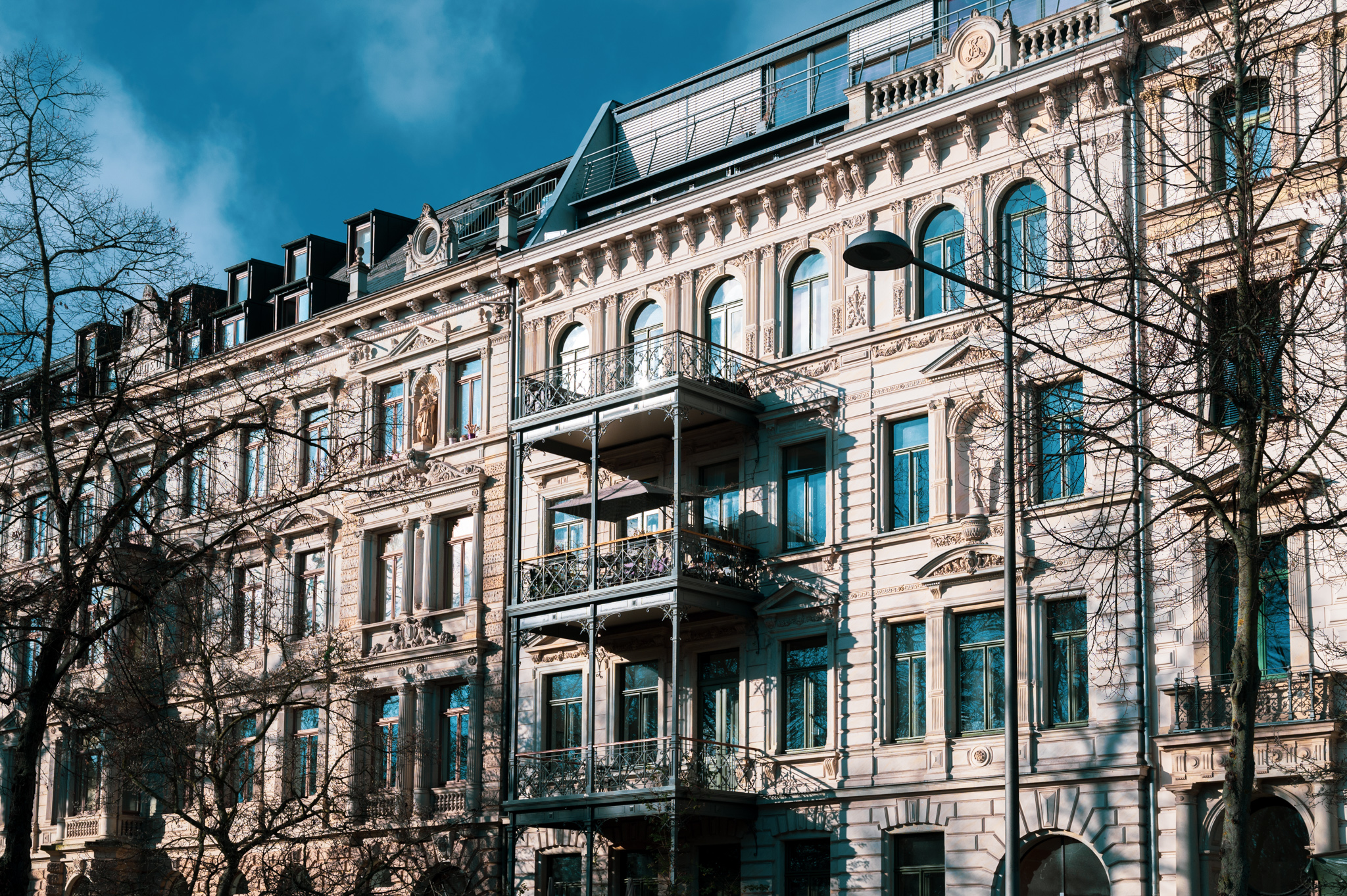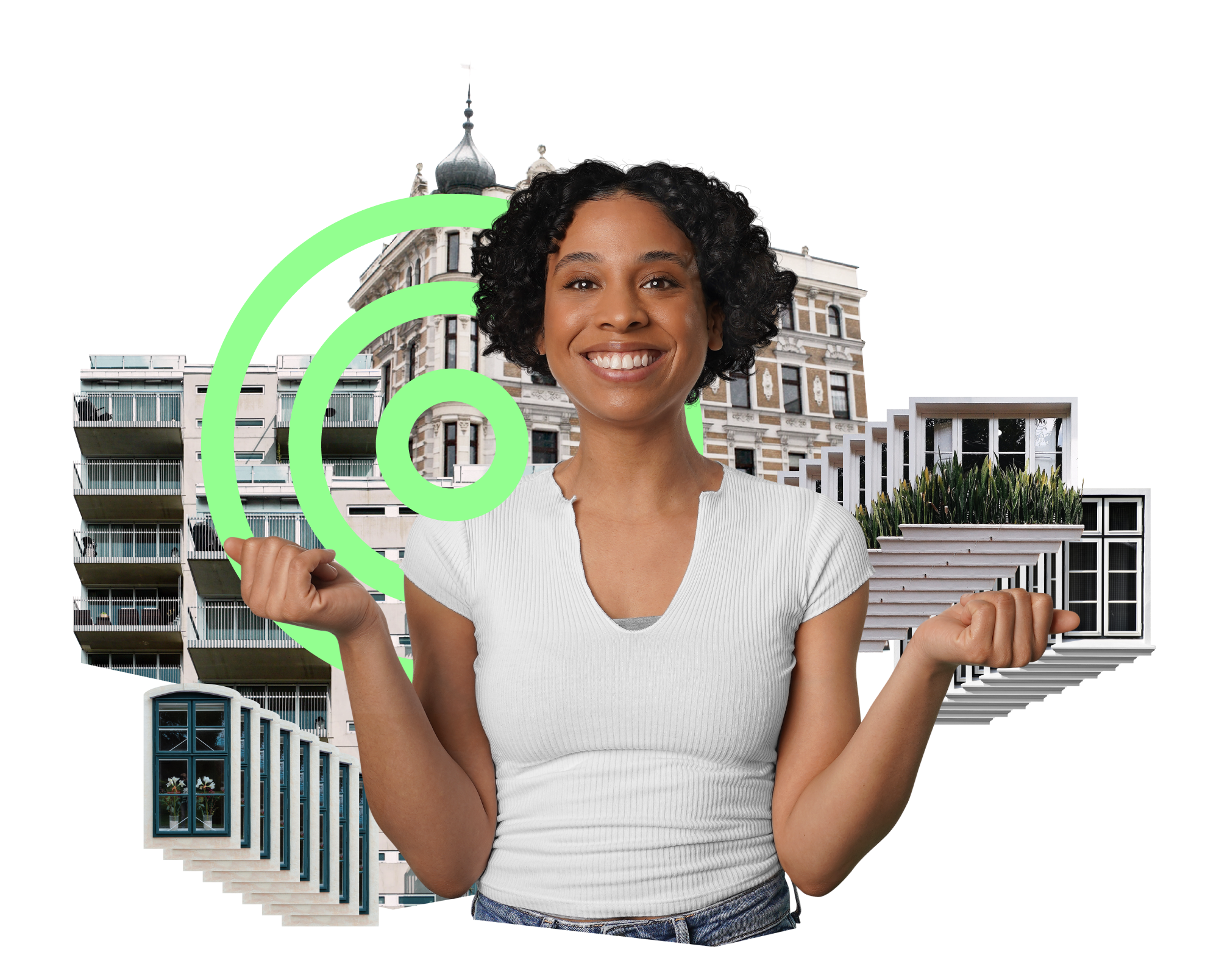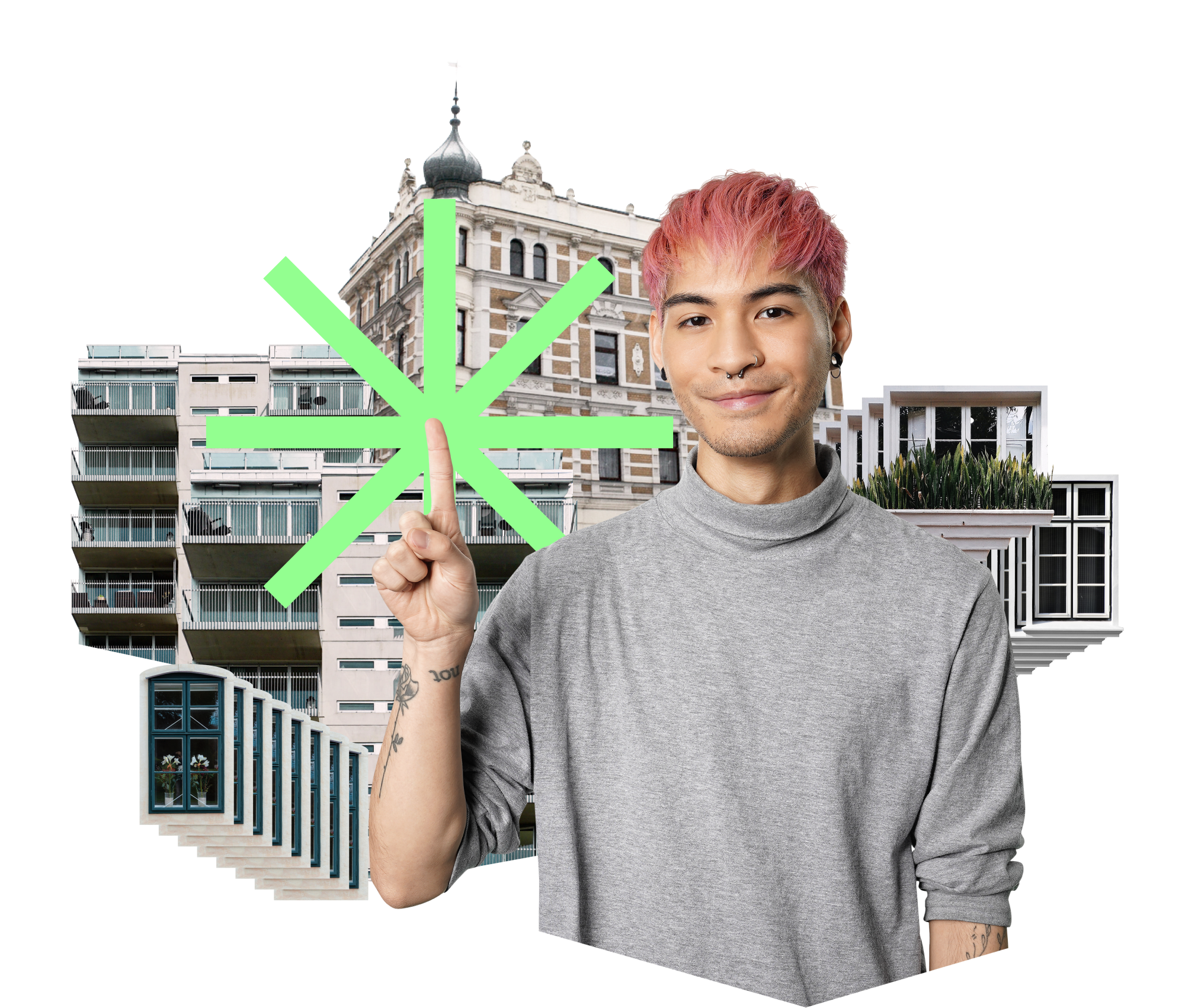Property as a retirement provision
Good or bad idea?

Real estate for retirement income. Yes? Yes!
Real estate is an excellent addition to your retirement plan. And it doesn't even matter if you buy your own home or rent out a property. There are good arguments for both. In any case, you should prepare for your retirement because the statutory pension alone won't be enough to cover your finances when you're old.
Investing in ETFs and shares always sounds like the more affordable option compared to real estate. But you'd be surprised to learn in how many cases real estate investments are viable options. Find out how you can buy property for your retirement — even with little to no equity.
Depending on how you plan on using the property, you can either save on rent payments in retirement through homeownership or receive money through rental income from an investment property. Both options require different approaches.
While location factors play a decisive role in the case of an owner-occupied home, yield opportunities and potential for value appreciation are more important with a buy-to-let property. If you have any questions about this, just contact us — or ask the Urbyo Community.
You can already get many tips and information right here.
Homeownership vs. buy-to-let property as a retirement provision
You can go about it in two ways: either you move in and then keep the property as a retirement home, or you purchase a buy-to-let property, which provides you with additional income through rent.
Of course, property investments can quickly reach six or seven figures. You generally don't buy an apartment just like that. Urbyo changes things, though. We check all the properties that are sold on our website in advance. You're only offered those that make sense in terms of location, condition, price and expected return. No fakes, no overpriced properties. You just have to decide whether you want to buy the property as a home or as a rental property. What does this come down to? Find out here.
Criteria for homeownership as a retirement provision
Being an owner-occupier is a lifestyle choice. Your new home has to be just right: from the location and size to the room layout and condition.
A great way to find out what matters to you in terms of location is by checking out these four aspects:
Landscape. Are you looking for an urban or rural area? You need to feel comfortable where you live.
Infrastructure. If it's important to you to have day-care centers, schools, retail stores, and doctors nearby and have great access to public transport, you should consider this when making your decision.
Quality of life. Everyone thrives in a different setting. Are you more interested in nature and tranquillity or cultural offerings such as theaters, cinemas, or cafes?
Work. Due to the pandemic, you can do a lot remotely — but not everything. It makes sense to live where you don't have to commute too long and from where you can easily reach your workplace.
The required size, equipment, and condition of the property depend on your needs. It has to fit your way of life. That also goes for the monthly installments. If you don't pay off the loan by the time you retire, those installments will still be there, as well as the ancillary costs.
Should you still save up when you're old? Absolutely, because renovations and modernizations are usually due later. Think accessibility. At 30, you're probably not thinking about whether you need a ground-level shower or a lift in the building yet — it's more of a nice-to-have than a need. Once you hit 70, however, things may look different. If you haven't saved enough money to commission necessary construction work, the only alternative is to sell your home and move to another property that meets your needs. Not an easy step when you've become emotionally attached to your home.
When is the right time to buy a house?
It depends on the person. But the base requirement is that you have more money than you spend monthly. If your budget calculation checks out, we recommend buying your dream property as early as possible. By the time you retire, you'll have paid off your mortgage and eliminated most of your fixed costs. That makes things smoother on the accounting front. If you look at the real estate market, you'll also notice that rent prices are currently rising. A mortgage rate is often lower or equal.
Criteria for a buy-to-let property as a retirement provision
Unlike an owner-occupied apartment, a buy-to-let property doesn't necessarily have to be perfect. Equipment, layout, or distance from your office aren't critical. Of course, the location and property type must be a good fit. A studio apartment in the countryside may be vacant more often or longer than in a university town. Other than that, the purchase decision is much more subjective.
Planning is vital for retirement:
Does the rental income cover your monthly payments?
What is the rate of return?
What is the population forecast for the area?
How does this affect a possible value increase of your buy-to-let property?
Your goal with a rental property bought as a retirement plan might be to have more money left at the end of the month that you can save up, possibly allowing you to retire sooner. Or to secure a regular, additional source of income by renting it out. Once you pay off your mortgage, the entire rental income goes into your bank account. Alternatively, you may want to sell the apartment at some point.
And if you're thinking, "That's all fine and dandy, but I can't afford it," listen up:
Good to know
If you have a job, no or low installment loans, and a net income of at least €2,000 per month, you can also invest in a buy-to-let property as a retirement plan.
You don't have to buy a detached single-family home in a prime location. A studio or 2-room apartment in a university town is a great place to start.
Sell buy-to-let property or continue to receive rent?
It depends on your circumstances. And, of course, it's also a tax decision: you must pay tax on the rental income. However, the sale of your buy-to-let property is tax-free after ten years.
But before you sell a property to buy a new one, you should always consider whether it's worth keeping as additional collateral. The bank treats it as equity for the next purchase. In addition, you save yourself the early repayment penalty if you want to sell the property before the fixed-interest period ends.
Interested? Feel free to discuss this with your Urbyo colleagues.

